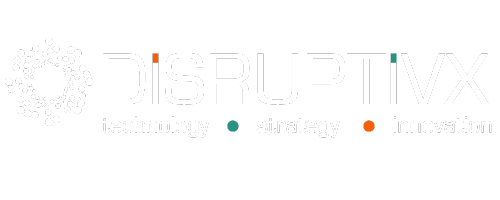In today’s rapidly evolving digital landscape, businesses are constantly seeking ways to enhance their technological infrastructure while maintaining flexibility, security, and cost-effectiveness. Enter hybrid cloud development – a powerful solution that combines the best of both public and private cloud environments. This approach is revolutionising how organisations manage their IT resources, fostering innovation, and driving operational agility.
Understanding Hybrid Cloud
A hybrid cloud environment integrates on-premises infrastructure, private cloud services, and public cloud platforms into a seamless, unified system. This architecture allows businesses to leverage the scalability and cost-efficiency of public clouds while maintaining control over sensitive data and critical applications through private cloud or on-premises solutions.
The Benefits of Hybrid Cloud Development
1. Enhanced Flexibility and Scalability
Hybrid cloud environments offer unparalleled flexibility. Organisations can scale resources up or down based on demand, ensuring optimal performance during peak times without the need for significant capital expenditure on permanent infrastructure.
2. Cost Optimisation
By leveraging public cloud services for non-sensitive operations and burst capacity, businesses can significantly reduce their IT infrastructure costs. Meanwhile, mission-critical or sensitive workloads can remain on private clouds or on-premises, optimising overall spend.
3. Improved Security and Compliance
Hybrid cloud models allow organisations to maintain strict control over sensitive data and comply with industry regulations by keeping critical information on private infrastructure while utilising public clouds for less sensitive operations.
4. Faster Time-to-Market
The agility provided by hybrid cloud environments enables businesses to rapidly develop, test, and deploy new applications and services, significantly reducing time-to-market for new products and features.
Overcoming Challenges in Hybrid Cloud Adoption
While the benefits are compelling, implementing a hybrid cloud strategy comes with its own set of challenges:
- Integration Complexities: Ensuring seamless integration between different cloud environments and legacy systems can be technically challenging.
- Data Management and Governance: Managing data across multiple environments requires robust governance policies and tools.
- Skills Gap: Many organisations lack the in-house expertise to effectively manage hybrid cloud environments.
- Security Concerns: Securing data and applications across multiple environments requires a comprehensive and unified security strategy.
Best Practices for Successful Hybrid Cloud Implementation
To maximise the benefits of hybrid cloud development, organisations should consider the following best practices:
- Develop a Clear Strategy: Define your objectives, workload placement criteria, and migration roadmap before implementation.
- Choose the Right Cloud Partners: Select cloud providers that align with your business needs and offer robust integration capabilities.
- Ensure Robust Security Measures: Implement a comprehensive security strategy that covers all environments in your hybrid cloud.
- Implement Effective Monitoring and Management Tools: Utilise tools that provide visibility and control across your entire hybrid infrastructure.
Real-world Success Stories
Many organisations across various industries have successfully leveraged hybrid cloud development to drive innovation and efficiency:
- A global financial services firm utilised a hybrid cloud approach to maintain compliance for sensitive customer data while leveraging public cloud resources for analytics and customer-facing applications, resulting in a 30% reduction in IT costs and a 50% improvement in application deployment times.
- A healthcare provider implemented a hybrid cloud solution to securely manage patient records on-premises while using public cloud services for research and development, leading to accelerated drug discovery processes and improved patient care.
The Future of Hybrid Cloud Development
As technology continues to evolve, we anticipate several trends shaping the future of hybrid cloud:
- Edge Computing Integration: Hybrid clouds will increasingly incorporate edge computing to process data closer to its source, reducing latency and enhancing real-time capabilities.
- AI and Machine Learning: Advanced analytics and AI capabilities will be seamlessly integrated across hybrid environments, driving intelligent automation and decision-making.
- Multi-cloud Strategies: Organisations will increasingly adopt multi-cloud approaches within their hybrid infrastructure to avoid vendor lock-in and optimise workload placement.
How Our Consulting Firm Can Help
At DisruptivX, we specialise in guiding organisations through their hybrid cloud journey. Our approach focuses on:
- Strategic Planning: We work closely with your team to develop a tailored hybrid cloud strategy aligned with your business objectives.
- Implementation and Integration: Our experts ensure seamless integration of public and private cloud environments with your existing infrastructure.
- Security and Compliance: We implement robust security measures and ensure your hybrid cloud setup meets all relevant compliance requirements.
- Ongoing Optimisation: We continuously monitor and optimise your hybrid cloud environment to ensure maximum efficiency and ROI.
By partnering with us, you can accelerate your cloud journey, foster innovation, and enhance operational agility. Our proven methodologies and deep expertise enable you to harness the full potential of hybrid cloud development while minimising risks and challenges.
Conclusion
Hybrid cloud development represents a pivotal shift in how organisations approach their IT infrastructure. By combining the strengths of public and private clouds, businesses can achieve unprecedented levels of flexibility, efficiency, and innovation. As the digital landscape continues to evolve, those who successfully implement hybrid cloud strategies will be well-positioned to lead in their respective industries.
Ready to transform your network and workplace environment with a hybrid cloud approach? Contact us today to start your journey towards enhanced innovation and operational agility.

